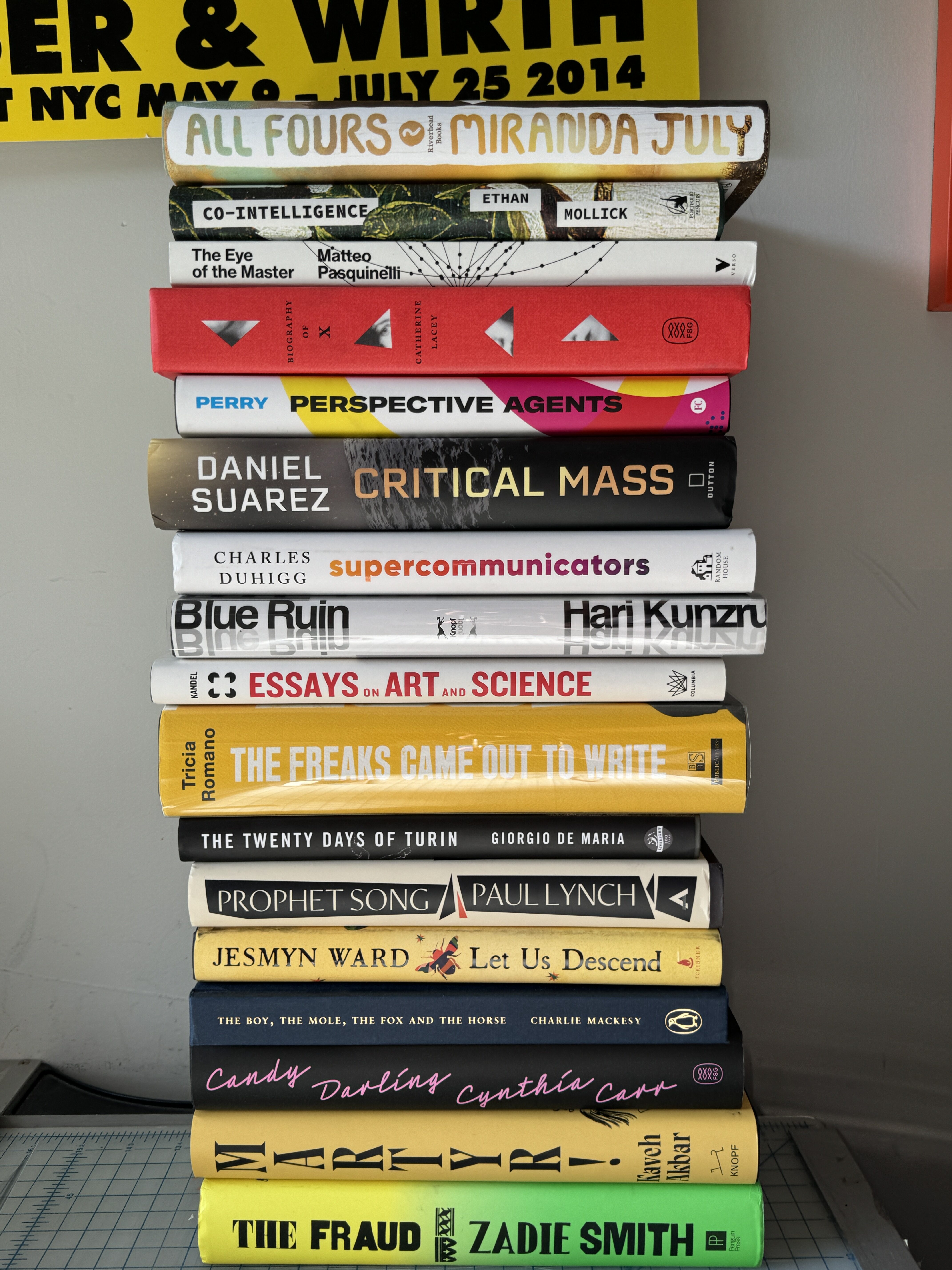“And when I opened the curtains they were taking the set away and packing up for the day, the cameras and lights turned off. ;
The darkness replaced with strip lights and the grey skies, the blind whirring of machinery.
I’d like to write a beautiful story about love.” Stanley Donwood
Storytelling is a fundamental human need, an art that is a moral imperative, the mediums through which we express this need have changed from spoken word passed down through generations to AI and other technologies that are emerging now.
The future of storytelling lies in the tales we tell, and the tools we use to create to tell them. Stories shape our world and imagination.
New tools can break barriers and democratize storytelling, allowing diverse voices to inspire hope, foster empathy, and guide positive change. Tools with the potential to be as revolutionary as the alphabet or the camera, allowing for new narrative exploration and more importantly the ability for us to impact our collective imagination. Text to screen is powerful advancement in our ability to tell stories.
Tools and technology has always impacted storytelling, from silent films to interactive narratives, augmented reality, and AI-assisted story generation. These advances have blurred the line between passive viewer and active participant, the economics of content creation has made it easy for people to share mulit-model narrivies with ease.
TikTok exemplifies the ongoing shift from passive to active engagement between creators and viewers, eliminating the need for traditional infrastructure, tools, and gatekeeping mechanisms.
We become the stories we tell.
Stories, especially science fiction, influence technological innovation. Works like “Star Trek” and “Neuromancer” inspired inventions like flip phones and the internet. Stories reflect our hopes and fears about technology, guiding its development. They inspire us to push boundaries and navigate the ethical implications of our creations.
Science fiction has often predicted technological advancements that later became reality. The Metaverse from Neal Stephenson’s “Snow Crash,” AI assistants like Siri and Alexa inspired by Isaac Asimov’s “I, Robot,” the concept of cyberspace from William Gibson’s “Neuromancer,” and tablet computers and video calls from Arthur C. Clarke’s “2001: A Space Odyssey.”
Authors like Wells, Asimov, Clarke, Dick, Robinson, and Liu have predicted technologies and grappled with their ethical implications. Their stories act as a laboratory for exploring ideas and their consequences, shaping our expectations, innovations, and the future. In a sense these authors are futurists in disguise.
Our narrative preferences mirror our cultural and personal contexts. Stories reflect societal values; for example, climate fiction reflects environmental concerns.
The goal is to create a virtuous cycle: better tools that lead to stronger more impactful stories, which in turn inspire more beneficial real-world innovations, feeding back into even better stories. This approach aligns storytelling tools directly with the aim of influencing the development of positive technology and ideally societal progress. Story telling tools that enable the creative process, not disrupt it.
Make tools that realize and render a stronger future.
Tools focused on promoting stronger, future-shaping narratives.
New storytelling tools, such as generative AI, democratize storytelling by lowering barriers to entry and making it accessible to diverse voices. These tools enable rapid integration of new technologies, generative or otherwise, take advantage of immediate global distribution, and support trans-media storytelling across various platforms and screens. Tools that enhance interactivity, create immersive experiences, and foster collaborative creation and feedback. The opposite of legacy broadcast and film models.
By creating tools that facilitate stronger narratives that everyone can use we can potentially alter the course of our collective future, explore solutions to global challenges, foster empathy, and inspire innovations. Everyone should be able to create using cutting-edge storytelling tools. Maybe we can use power of storytelling and how they impact us to craft a more hopeful, inclusive, and innovative future. The stories we tell and the tools we use are blueprints for the world we wish to build. We all need tools that realize and render a better future.






